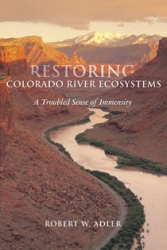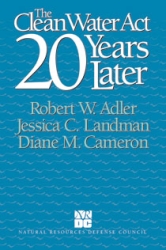
Robert W. Adler
Robert W. Adler is James I. Farr Chair in Law, the Associate Dean for Academic Affairs, and Professor of Law at the S.J. Quinney College of Law, University of Utah. He is also affiliated with the Natural Resources Defense Council as Senior Attorney, where he specializes in water-related issues.
As a scholar, Adler urges a broader, more holistic approach to the restoration and protection of aquatic and other ecosystems than is used in traditional environmental laws alone, which focus on discrete kinds of environmental harm. Adler practiced environmental law for 15 years. He has published dozens of articles and reports in law, policy and science journals including Vanderbilt Law Review, Harvard Environmental Law Review, Utah Law Review, and George Washington Law Review, and a book on the history and impact of the Clean Water Act. He has authored Environmental Law: A Conceptual and Pragmatic Approach (with David Driesen, Aspen Publishers) and Restoring Colorado River Ecosystems: A Troubled Sense of Immensity (Island Press).
He regularly teaches courses in civil procedure and environmental law, and is currently co-designing an interdisciplinary course called “Environmental Law and Engineering,” in which law students and environmental engineering graduate students will work together on real-world environmental problems in Utah. Adler loves to spend time in Utah’s outdoors, and in 2005 completed the Wasatch Front 100-mile trail race through Utah’s beautiful Wasatch Mountains.


